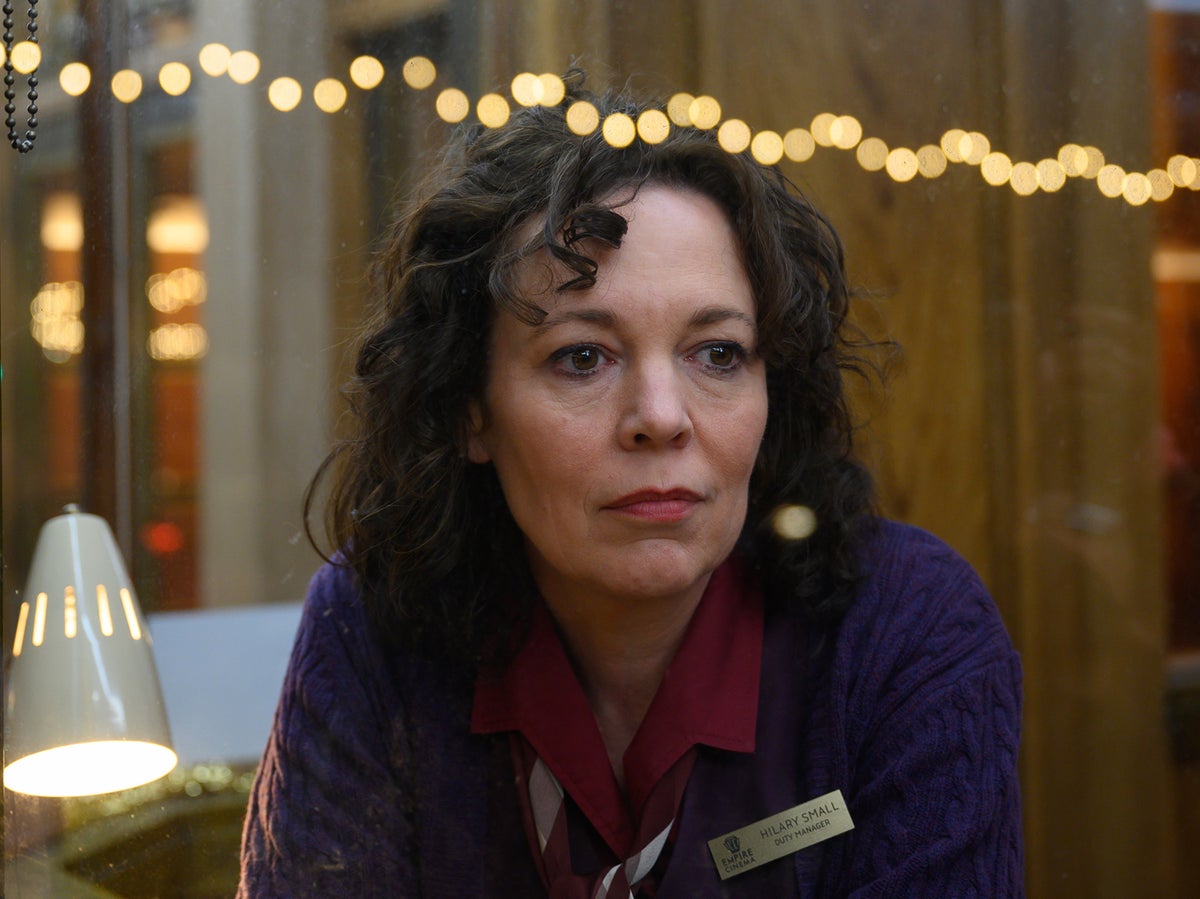
There is a shallowness to Sam Mendes’s Empire of Light, as if it’s more interested in grand displays of emotion than reflecting the full-body experience of someone’s life. Mendes has called it a tribute to his own mother. Others have declared it a love letter to cinema. So why is it so oddly impersonal? So cold? So closed off from its audience?
Set in 1981, within a fictional Margate cinema named the Empire, it concerns a love affair that seems predicated mostly on sorrow. Hilary Small (Olivia Colman), middle-aged, lives half-invisible with a psychiatric disorder. Stephen (Micheal Ward), significantly younger, is the son of Caribbean immigrants faced with the daily trauma of a racist England.
Both work at the Empire, Stephen newly employed. All it takes to nurture their romantic impulses is their discovery of a pigeon with a broken wing – they, of course, feel a kinship with this lonely, vulnerable creature. Empire of Light skips between their respective sufferings, always through the other’s eyes. Hilary watches, helpless, when Stephen is the victim of racist attacks. Stephen watches, helpless, when Hilary is chewed up and spit out by the health care system.
Mendes’s script, his first as a solo writer, deals with a sort of formless empathy – what it’s like to witness injustice and feel very, very bad about it. But it lacks necessary self-interrogation. There’s no real sense of purpose beyond the soothing of a privileged viewer’s guilt. The emotions are too thin, a set of codes to interpret rather than anything raw or real. Hilary’s soul-sickness is neatly summarised by the tragedy of the single cracker lying next to a Christmas-dinner-for-one, or by the repellent command of “suck me” by the Empire manager (Colin Firth) who regularly calls her into his office to demand listless handjobs.
Colman, who doesn’t seem to have an inauthentic bone in her body, takes hold of Hilary’s public breakdowns with both fists at the ready – she’s glorious in her untethering, with lipstick on her teeth. But we’re watching these characters from a distance, as if through warped glass, in a way that does a particular disservice to the quiet, internal collapse Ward conjures in Stephen. The most important figures in his life, Stephen’s mother Delia (Tanya Moodie) and his old girlfriend Ruby (Crystal Clarke), are such late additions to the story that they’re barely allowed to make an impression.
And what of this supposed “love letter to cinema”? There’s a hint of it in the cinematography of Mendes’s frequent collaborator, Roger Deakins (Skyfall, 1917). There’s such tender care in each frame, in the way characters are haloed within the vast expanses of Mark Tildesley’s detailed production design. They look like saints plucked out of a triptych. It certainly achieves more than the sentimental speeches of projectionist Toby Norman (Toby Jones), or the background advertisements for contemporary films like The Blues Brothers, Stir Crazy, or Raging Bull.
Empire of Light ends on Hilary, a former film agnostic now converted, her teary features lit up by the projection playing on screen. It’s Hal Ashby’s Being There, featuring a late-career Peter Sellers (though Mendes never explores his almost ironic choice of movie, about a man raised by television finally stepping out into the outside world). The shot feels mechanically engineered for one of those “see you at the movies” montages at the Oscars, offering about the same insight as Nicole Kidman, in her viral ad for the US cinema chain AMC, declaring that “somehow heartbreak feels good in a place like this”. Empire of Light cares only that Hilary wear that heartbreak for all to see. What sparked it is anyone’s guess.
Dir: Sam Mendes. Starring: Olivia Colman, Micheal Ward, Tanya Moodie, Toby Jones, Colin Firth. 15, 115 minutes.
‘Empire of Light’ is in cinemas from Monday 9 January







